+91 6363939739
Mon-fri: 9am-7pm ; Sat-9am to 5pm ; Sun- emergency only
Locate Us
Contact Us
Dental Fillings – Restore Your Teeth & Protect Your Smile
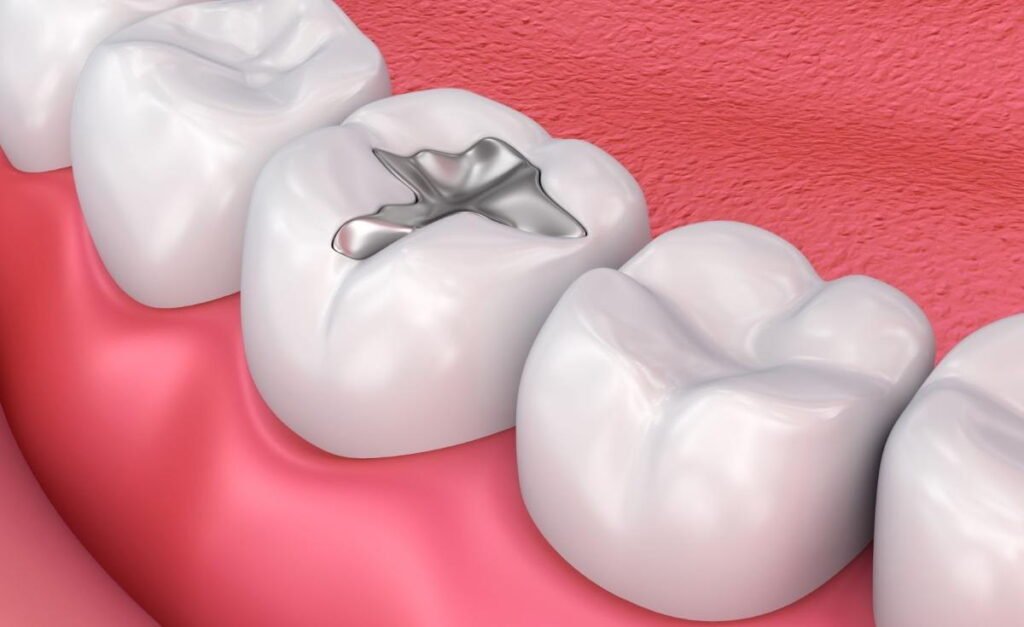
Talk to a Dentist Now!
Table of Contents
Introduction to Dental Fillings
What Are Dental Fillings?
When Do You Need a Dental Filling?
Types of Dental Filling Materials
Procedure of Dental Fillings at Fab Dental
Benefits of Dental Fillings
How Long Do Fillings Last?
Cost of Dental Fillings
Why Choose Fab Dental for Fillings?
FAQs
Introduction to Dental Fillings
Dental cavities and tooth decay are among the most common dental problems. If left untreated, they can lead to severe pain, infection, or even tooth loss. Dental fillings are one of the most effective and affordable solutions to restore damaged teeth and prevent further decay. At Fab Dental, we provide high-quality, durable fillings that protect your teeth and maintain their natural appearance.
What Are Dental Fillings?
A dental filling is a restorative material used to fill cavities or repair damaged teeth. The decayed or infected portion of the tooth is removed, and the space is filled with suitable dental material to restore strength, function, and aesthetics.
When Do You Need a Dental Filling?
You may require a dental filling if you experience:
Toothache or sensitivity (hot, cold, or sweet foods)
Visible holes or black spots on your teeth
Cracked, broken, or chipped teeth
Worn-down teeth due to grinding or habits like nail-biting
Food getting stuck between teeth frequently
Types of Dental Filling Materials
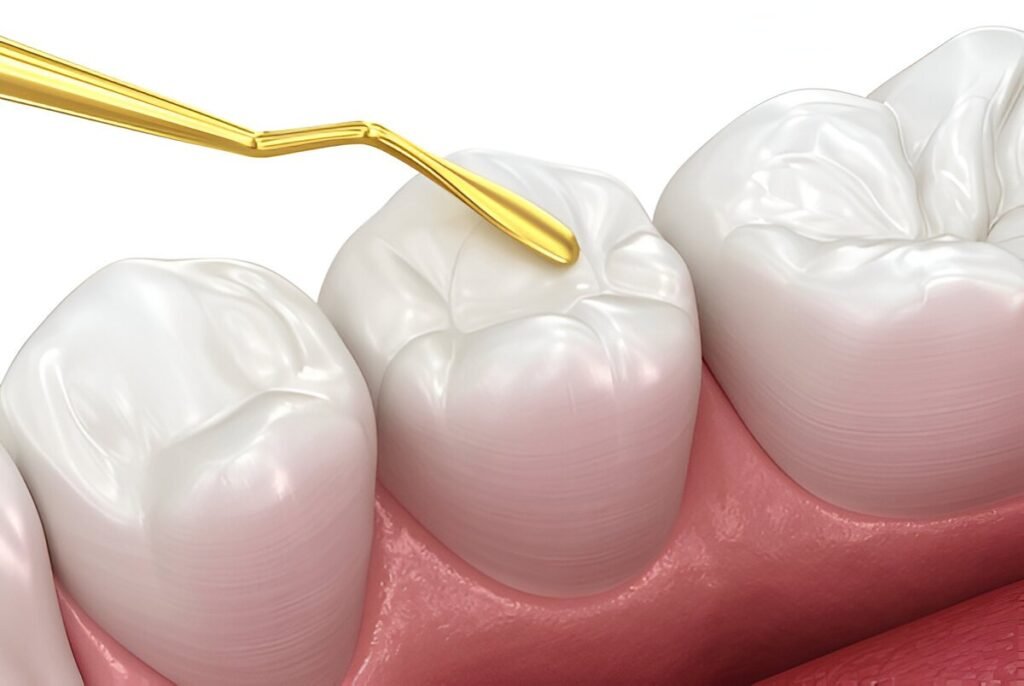
Composite Resin (Tooth-Colored Fillings)
Aesthetic, blends naturally with teeth.
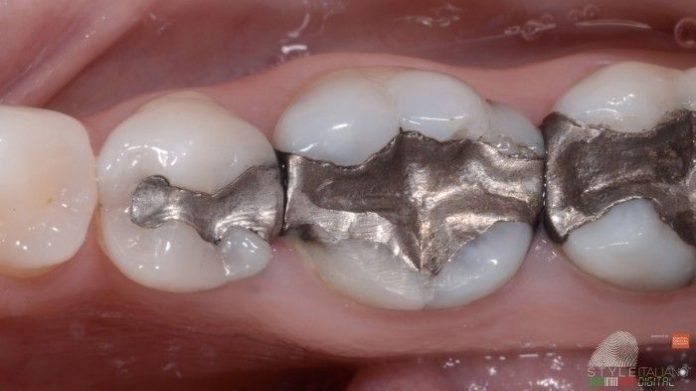
Amalgam Fillings (Silver)
Durable and strong, suitable for back teeth.
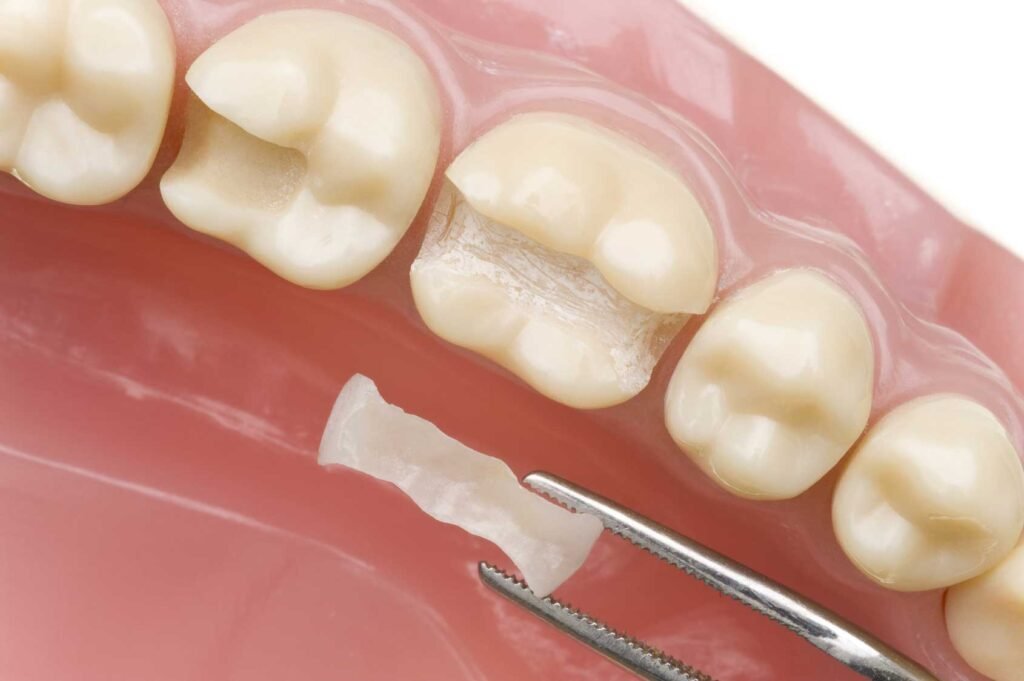
Ceramic Fillings (Porcelain)
Resistant to staining and highly aesthetic.
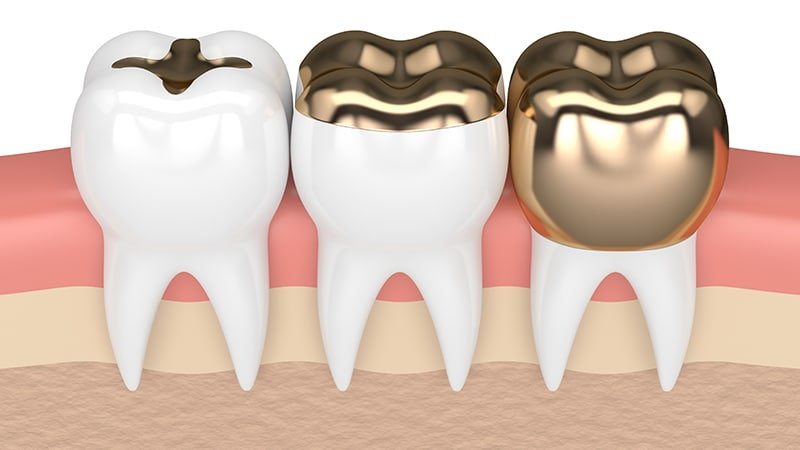
Gold Fillings
Long-lasting and biocompatible, but more expensive.
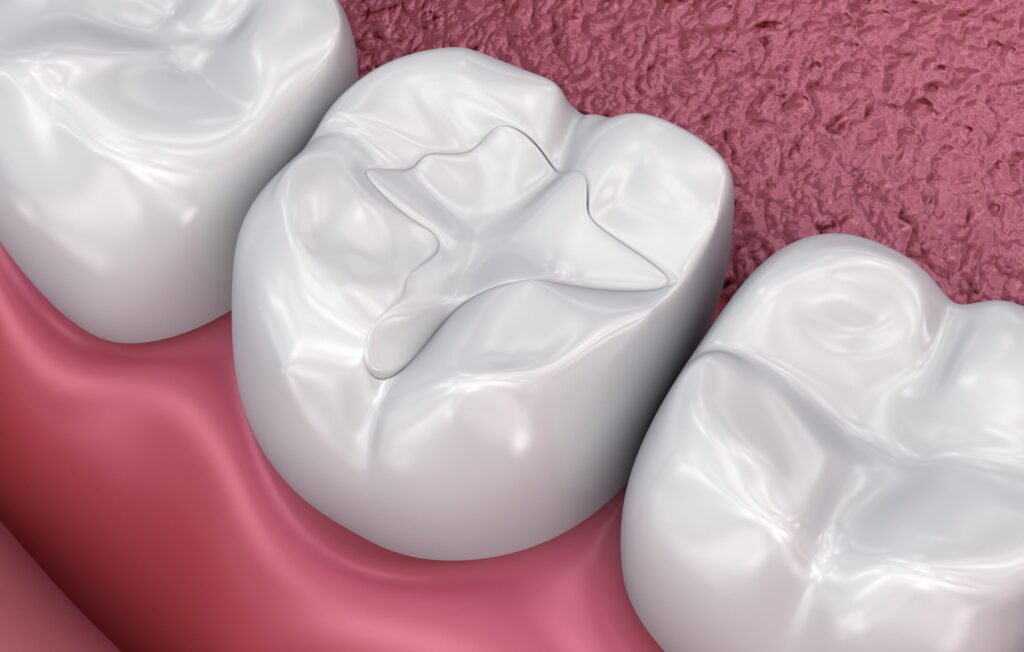
Glass Ionomer
Releases fluoride, ideal for children or small cavities.
Procedure of Dental Fillings at Fab Dental
The process of getting a filling is quick and painless:
Examination & Diagnosis – Dentist checks the tooth and may take an X-ray.
Local Anesthesia – To ensure a painless procedure (if required).
Decay Removal – The decayed portion of the tooth is removed carefully.
Cleaning the Cavity – Tooth is disinfected and prepared for filling.
Filling Placement – Suitable filling material is applied and shaped.
Polishing & Final Touch – The filling is polished for comfort and aesthetics.
Benefits of Dental Fillings
Stops tooth decay from spreading further
Restores normal chewing and biting function
Strengthens damaged teeth
Prevents infections and abscess formation
Improves the appearance of teeth (with tooth-colored fillings)
Affordable and quick treatment
How Long Do Fillings Last?
The lifespan of a filling depends on the material and oral hygiene habits:
Amalgam: 10–15 years
Composite Resin: 5–7 years
Ceramic: 10–15 years
Gold: 15–20 years or longer
With regular dental check-ups, fillings can last even longer.
Cost of Dental Fillings
The cost of dental fillings at Fab Dental varies based on:
Type of filling material used
Size and location of the cavity
Complexity of the treatment
We offer budget-friendly options without compromising on quality, ensuring your teeth get the best care.
Why Choose Fab Dental for Fillings?
Q1: Are dental fillings painful?
A: No, the procedure is painless as local anesthesia is used if necessary. Mild sensitivity after treatment is normal and temporary.
Q2: Can fillings fall out?
A: Yes, fillings can loosen or fall out if not properly maintained or due to chewing hard foods. If this happens, visit Fab Dental immediately for replacement.
Q3: Can I eat after getting a filling?
A: You can eat after the anesthesia wears off. However, avoid very hot, cold, or hard foods for the first 24 hours.
Q4: Are tooth-colored fillings as strong as silver fillings?
A: Composite (tooth-colored) fillings are durable and strong, though silver or gold fillings may last longer.
Q5: What happens if I don’t get a filling for a cavity?
A: The cavity will grow, leading to severe pain, infection, or the need for root canal treatment or even extraction.
Q6: How do I take care of my fillings?
A: Maintain good oral hygiene, brush twice a day, floss daily, and visit Fab Dental for regular check-ups.
Frequently Asked Questions
Q1: Are dental cleanings painful?
A: No, cleanings are usually painless. You may feel mild sensitivity if you have gum inflammation, but it is temporary.
Q2: How long does a cleaning and check-up take?
A: A routine session usually takes 30 to 45 minutes, depending on the level of plaque and tartar buildup.
Q3: Can I skip dental visits if I brush and floss daily?
A: No. Even with perfect oral care, plaque and tartar can accumulate in hard-to-reach areas. Professional cleaning ensures thorough care.
Q4: Is dental cleaning safe for children?
A: Yes. Pediatric dental cleanings are safe and recommended to protect children’s teeth as they grow.
Q5: Can dental cleanings whiten my teeth?
A: Cleanings remove surface stains and make teeth look brighter, but for deeper stains, professional whitening is recommended.
Q6: What happens if I avoid regular check-ups?
A: Delaying dental visits can lead to cavities, gum disease, infections, or even tooth loss, which may require costly treatments later.
